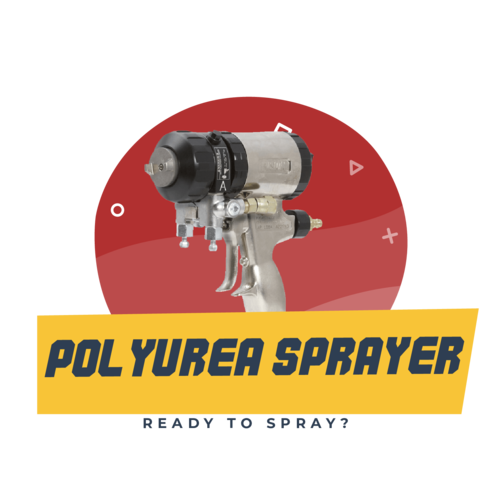Polyurea coatings offer unique advantages that are superior to other types of protective coatings. We will be addressing several important questions when you are considering using polyurea coatings.
What is Polyurea?
Polyurea, an elastomer product made from step-growth polymerization that incorporates reactive isocyanate and artificial resin, is a result. Polyurea is made from an isocyanate and a resin mixture part by the step-growth method of polymerization.
There are many different formulas for resins and isocyanates that can produce the desired setup time, color, fire retarding, water resistance, and other attributes.
Crossbreed coatings are polyurea and polyurethane mixed in the right proportions. Crossbreed coatings provide details about the physical properties of pure Polyurea at lower prices.
What is the difference between Aliphatic Polyurea and Aromatic Polyurea?
Polyureas made from aromatic diisocyanates have a high ultraviolet (UV) light sensitivity. Sunlight direct exposure and synthetic UV light can cause deterioration in the Polyurea's properties and color makeovers like darkening or chalking. Aromatic Polyurea can be used as a base coat, but it is not recommended for top coats.
Polyureas made from aliphatic isocyanates are able to withstand sunlight exposure, and can be used under UV natural conditions. Because they have a glossy appearance, they are popular for outdoor applications. They can also be used at lower film densities (around 30 mils). They are still more expensive than aromatic polyureas due to the need for facility handling.
What are the Unique Traits Of Polyurea?
Because of Polyurea's unique physical properties, stability and commercialization, no coating system can successfully alter it in any way. Its surface preparation specifications are very strict.
Polyurea protects steel, concrete and wooden surfaces from rust and abrasion. It can help protect concrete structures that are deteriorating and assist in rehabilitation and maintenance of canals. It can withstand chemicals, oils and salts used in commercial and industrial flooring applications. It protects watercraft and other vessels from damage by protecting them against splitting and deterioration.
Polyurea coatings have the following advantages:
Setup time is quick
Excellent scratch and abrasion resistance
Extremely strong resistance to environmental and weather conditions
Excellent for commercial or residential properties that need to be extended
It can also be used in extreme temperatures
You can finely regulate the coating density
Highly effective bonding of cement, concrete, wood and metals on well-prepared surfaces
Superior chemical resistance
Low viscosity is a useful tool
It can be made with a high tensile force
What is Polyurea's comparison to other Epoxies.
Polyurea has a significantly higher wetness resistance than epoxy coatings. It also resists UV (for aliphatic coatings), abrasion, chemical resistance and temperature resistance. Polyurea also has a faster cure time.
Polyurea is a superior alternative to polyurethane in terms of toughness, chemical endurance and dampness resistance.
What are some examples of Polyurea Coatings that can be used?
Polyurea coatings have many benefits, including the following:
Automotive market and material management
For more than 30 years, the automotive industry has used polyurea coatings. Because of its impact resistance and other mechanical properties, the coating is very popular.
Polyurea provides abrasion protection in mining and building equipment. It can also be used for lining dumps that are used for abrasive materials such as coal or metal ores. It protects the conveyors as well as waves of conveyor systems moving abrasive stones, metal ores, and abrasive coal.
It can also be used for bed linings, big industrial lorries, and product handling trucks.
Safety and defense markets
Polyurea coatings are able to be used in protection and protection sectors due to their proven effect resistance, ability to absorb explosive power, durability and quick setting characteristics.
The use of Polyurea in the ballistic missile defense system has been well documented. Polyurea is a coating for military devices that can adapt and broaden to suit the changing ambient temperature and provide a moisture seal. The coatings are guaranteed to be free from marks, dents and abrasion damage, while still retaining a glossy appearance. Spray coating polyurea on truck bed liner can reduce vibration and increase security. Polyurea can be used to coat structures of armed forces in order to reduce damage from bomb blasts.
Concrete bridges and steel surfaces
Polyurea is used as a first and second coating. It has a fast healing capability, influence resistance, elongation and high tensile strength. Polyurea's molecular chain (the framework) makes it an extremely durable elastomer. This is why it's so versatile in construction and other areas.
Polyurea coatings are a way to prevent concrete structures from collapsing by properly repairing the concrete framework. They also provide a protective seal around fractured and deteriorating concrete.
What are the limitations of polyurea coatings?
Polyurea coatings have their limitations, but also unique aspects.
The coating is very responsive and quickly cures, so if the coating setup is not done properly, it can cause poor attachment to the substrate. Before coatings are applied, formulators must ensure that the entire surface area is moistened. This is a very difficult situation.
The UV radiation can cause shade adjustments or liquid chalking in the case of aromatic polyurea coatings. UV radiation can negatively affect the appearance of these coatings. An aliphatic polyurea is recommended for applications that have a high aesthetic appeal.
High-pressure and high heat spray applications require specialized, innovative spray equipment. This task requires specialists who are trained in this area.
For success, formulation, primer option and thorough surface preparation are essential.
To learn more about Polyurea, or to become a certified ArmorThane polyurea application specialist, call or visit this website to ask questions.

















No comments:
Post a Comment